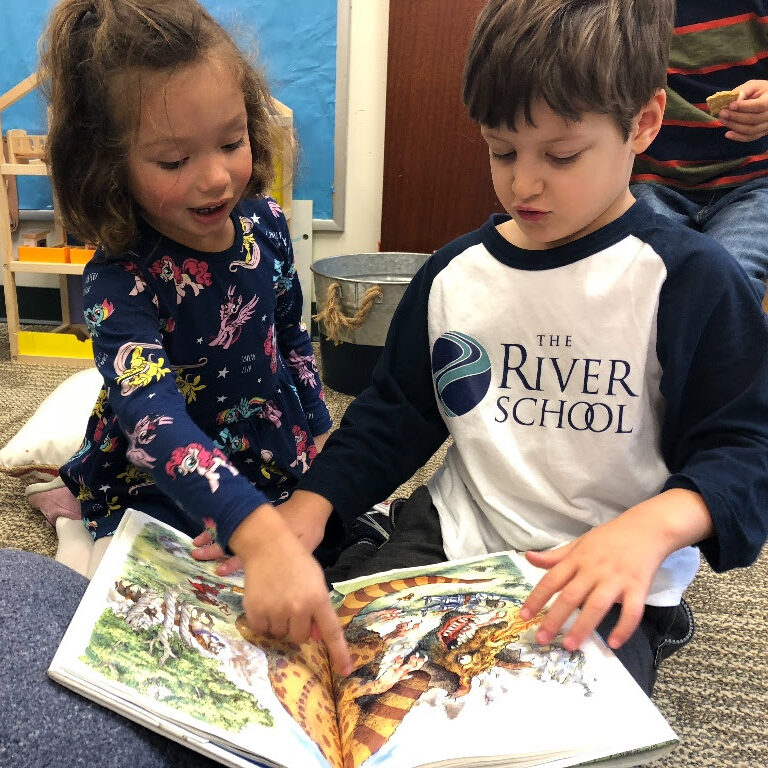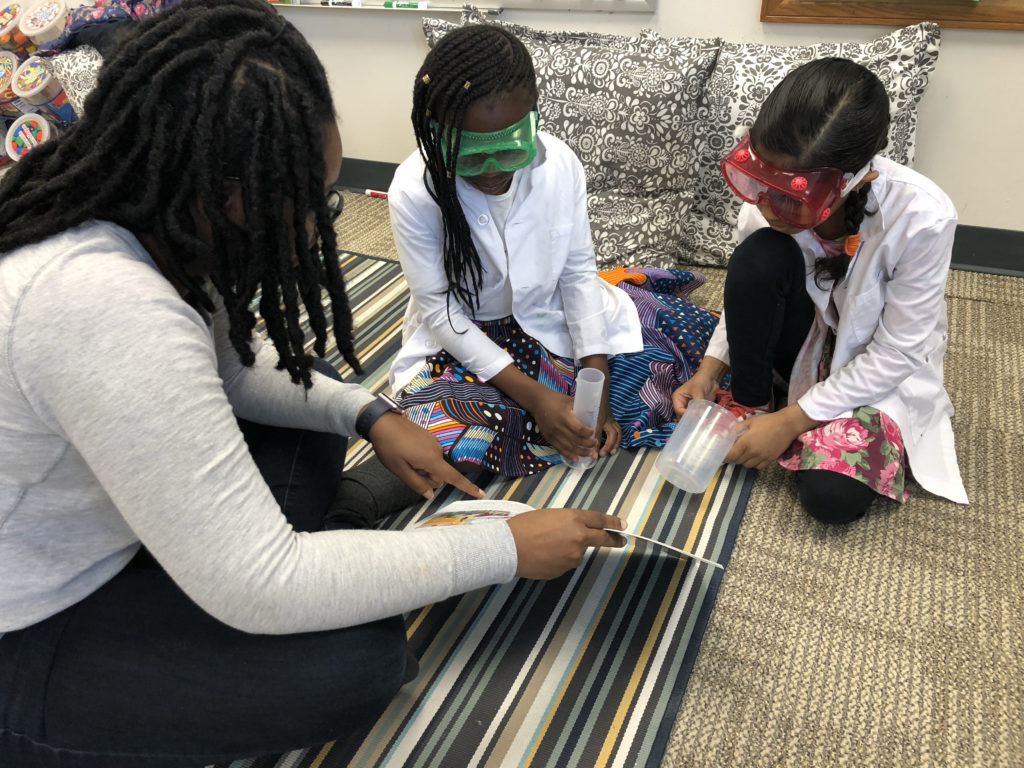

River Research
One of The River School's objectives is to conduct research in educational domains on best practices in the classroom. River is dedicated to validating its own approaches, researching innovations and sharing results with others in our field nationally and globally. Many of our clinicians and educators present our findings at national conferences and workshops throughout the year.
Parent-Child Interaction Therapy for Children with Hearing Loss. Parent-Child Interaction Therapy (PCIT) can be adapted as an effective intervention for children with hearing loss that targets language, behavior, and maternal sensitivity. A study of PCIT for children with hearing loss revealed significant changes in parent engagement, and increases in child utterances. Ongoing research is examining clinical outcomes for families with children that have hearing loss. Primary Investigator: Elizabeth Adams, PhD
The Relationship between Cognitive Factors and Language in Children with Cochlear Implants. This ongoing research examines the relationships between cognitive factors and language abilities for children with cochlear implants and hearing aids. Longitudinal, clinical data is analyzed to understand how the relationships between these factors impact outcomes. Primary Investigators: Elizabeth Adams, PhD, Dorothy White, PhD
Language and academic outcomes of children with cochlear implants in an inclusive setting: Evidence from 18+ years of data. This ongoing study examines outcomes in the areas of core language, pragmatic language, receptive vocabulary, and academic skills in a cohort of children with cochlear implants enrolled in our inclusive educational setting. Results are examined to determine the trajectory and length of time required for students with CIs in our program to obtain age-appropriate skills, when compared to normative data. Primary Investigators: Meredith Ouellette, MS, CCC-SLP, Sharlene Ottley, PhD, CCC-SLP
Intensive Literacy Enrichment Activities for Diverse Populations (I-LEAD): A Summer Literacy Program for Children with Hearing Loss from Diverse and Marginalized Backgrounds. This program is designed to meet the needs of children from diverse backgrounds with hearing loss with the goal of improving access to services for this population. The primary focus of the project is to improve overall vocabulary and literacy skills through the use of interactive reading strategies in an intensive summer program. Primary Investigator: Sharlene Ottley, Ph.D., CCC-SLP; Funded by: The American Speech-Language-Hearing Association (ASHA) Office of Multicultural Affairs Grant Program (2016-2017), The Alexander and Margaret Stewart Trust Foundation (2018-present)
Reid, Julia, Agrawal, S., Dwyer, R.T., Mitchell, C. (June 2023). Investigating Fitting of Bimodal Solutions in Children. Poster presented at the CI2023: Cochlear Implants in Children and Adults Conference. Dallas TX. This study examined hearing settings for pediatric patients using a hearing aid in one ear and a cochlear implant in the other. Two phases were conducted with different technologies. Results suggest that default settings for the original algorithm may not be suitable for these children. Improved noise performance was seen with the second-generation formula and a combination of the proprietary and established algorithms. Clinicians should consider individualized settings for optimal performance.
Wilson Ottley, S. & Heskey, C. (April 2023). Outcomes of a summer literacy program for children with hearing loss from underrepresented/marginalized groups. Symposium talk presented at the National Black Association for Speech-Language and Hearing Annual Convention. Washington, DC. Hearing loss (HL) may lead to delays in language and literacy development, due to lack of early auditory access. Children with HL from marginalized and underrepresented communities, may be at further risk for delays as they may not have the same exposure to detailed and rich vocabulary, are more often lost to follow-up, and do not have equal access to intervention (Sacks et al., 2013). The Intensive Literacy Enrichment Activities for Diverse Populations (ILEAD) project was designed to meet the needs of these children from diverse and marginalized backgrounds and focused on the use of interactive reading techniques to improve vocabulary and literacy skills. This session explored the outcomes of the program over three years.
Adams-Costa, E, White, DA, Ouellette, M, & Mellon, N. (November 2022). Unpacking Differential Diagnoses in Children with Hearing Loss. Symposium talk presented at the American Speech-Language-Hearing Association Annual Conference. Pre-Recorded. Published research indicates that outcomes in children with hearing loss are generally lower than their hearing counterparts. Given the cascading effects auditory deprivation and language delays may cause in children, providing differential diagnoses can present a challenge. This talk identified commonly occurring comorbid presentations in children with hearing loss, and described the process of making differential diagnoses.
White, DA, Adams-Costa, E, Mellon, N, Ouellette, M, Wilson Ottley, S. (November 2022) Socioemotional Functioning, Working Memory, and Language: Interconnected Facets of Presentation in Children With Hearing Loss. Symposium talk presented at the 2022 American Speech-Language-Hearing Association Annual Conference. New Orleans, LA. This study examined the relationships between language skill, socioemotional functioning, and working memory. Working memory and language ability were related to and predictive of parent and teacher report of socioemotional functioning, particularly in domains of inattention, hyperactivity, and functional communication. Stronger language and working memory were related to more positive socioemotional reports.
White, DA, Adams-Costa, E., Mellon, N, Ouellette, M, Wilson Ottley, S. (May 2022). Working Memory Predicts Report of Socioemotional Functioning. Symposium talk presented at the American Cochlear Implant Alliance Annual Meeting. Washington, D.C. This study examined preliminary relationships between parent and teacher reports of socioemotional functioning and working memory. Stronger working memory was related to better socioemotional functioning, on average. This study sought to lay the foundation for future predictive/exploratory work.
White, DA, Adams-Costa, E, Mellon, N, Ouellette, M, Wilson Ottley, S. (May 2022). Socioemotional Functioning and Language. Poster presented at the American Cochlear Implant Alliance Annual Meeting. Washington, D.C. Preliminary relationships between parent and teacher reports of socioemotional functioning and language ability through a variety of measures were examined. Stronger language ability was related to better socioemotional functioning, on average. This study sought to lay the foundation for future predictive/exploratory work.
Wilson Ottley, S. & Heskey, C. (May 2022). Outcomes of an intensive literacy summer program for children with CIs from diverse and/or marginalized backgrounds. Symposium talk presented at the American Cochlear Implant Alliance Annual Meeting. Washington, D.C. This study examined the ability to identify, label, and define target vocabulary words pre- and post-intervention in a group of children with hearing loss, who participated in an three-week intensive summer intervention. The intervention incorporated the use of interactive reading strategies and experiential, project based activities to target tier-2, higher level vocabulary.
Adams-Costa, E., White, D.A., Mellon, N., Ouellette, M., Wilson Ottley, S. (November 2021). Unpacking Differential Diagnoses in Children with Hearing Loss. Podium speaker at the 2017 American Speech-Language-Hearing Association (ASHA) Conference. Washington, DC. Published research indicates that outcomes in children with hearing loss are generally lower than their hearing counterparts. Given the cascading effects auditory deprivation and language delays may cause in children, providing differential diagnoses can present a challenge. This talk identified commonly occurring comorbid presentations in children with hearing loss, and described the process of making differential diagnoses.
Adams-Costa, E., White, D.A., Mellon, N., Ouellette, M., Wilson Ottley, S. (April 2021). The Relationship between Cognitive factors, Speech perception, and Language in Children with Cochlear Implants. Podium speaker at the CI2021: Cochlear Implants in Children and Adults Conference. Virtual. The study investigated the relationship between cognitive factors, language abilities, and speech recognition in children with cochlear implants. Significant correlations were found between working memory and speech perception (p=0.02), working memory and core language (p=0.01), and receptive vocabulary and core language (p<0.001). A relationship approaching significance was found between receptive vocabulary and speech-detection in noise (p=0.06). Working memory and core language was only correlated in children with working memory scores below average (p=0.008).
White, D.A., Adams-Costa, E., Mellon, N., Ouellette, M., Wilson Ottley, S. Cognitive Profiles of Children with Cochlear Implants: Results from a Sample of Children in the Context of a Supportive, Inclusive Model Over Time. Symposium talk presented at the American Cochlear Implant Association Annual Meeting: April 28th-May 1st 2021; Virtual. This study examined longitudinal patterns of cognitive scores of children with bilateral cochlear implants. Verbal scores were highly correlated with working memory and full-scale IQ, while visual-spatial scores operated independently, suggesting that the verbally-mediated nature of cognitive measures impacts measurement of cognitive skills in children with hearing loss or language difficulties.
White, D.A., Adams-Costa, E., Mellon, N., Ouellette, M., Wilson Ottley, S. COVID-19 Parenting Stress Among Parents of Children with Hearing Loss. Poster presented at the Association for Psychological Science Annual Meeting, May 26th-27th, 2021; Virtual. This study surveyed parents of children with and without hearing loss five months after returning to school in person after a hiatus due to the COVID-19 pandemic. In the context of a supportive, inclusive environment, parents of children with hearing loss did not have significantly different levels of parenting stress from parents of children without hearing loss.
Ouellette, M., White, D.A., Adams, E.B, Mellon, N. Parent Engagement Promotes Pediatric CI Outcomes: How and Why. Symposium talk presented at the American Cochlear Implant Association Annual Meeting: April 28th-May 1st 2021; Virtual. The presentation highlighted critical parent supports, validated by research, that can improve outcomes in young children with cochlear implants. Professionals play an important role in intervention for children with hearing loss, but parent engagement is critical to child outcomes. Family-centered early interventions should capitalize on families’ expertise and strengths, address individual family needs, foster warm and communicative parent–child interactions, and empower parents to take an active and leading role in their child’s treatment.
Wright, M., White, D.A., Ouellette, M., Mellon, N. Receptive Vocabulary and Reading Performance in Children with Cochlear Implants: An Exploration of the Impact of Consistent Intensive Early Intervention. Symposium talk presented at the American Cochlear Implant Association Annual Meeting: April 28th-May 1st 2021; Virtual. This study compared receptive vocabulary scores with reading performance at two time points (grades K and 2). Within-age correlations were significant, but across-age correlations were not. This presentation posited that The River School's unique literacy program served as a mediating factor that disrupted the expected relationship between receptive vocabulary and reading performance over time.
Wilson Ottley, S.M., Ouellette, M., Mellon, N. Caverly, C., Mitchell, C.M., & Adams Costa, E. (2023). Language and academic outcomes of children with cochlear implants in an inclusive setting: Evidence from 18 years of data. Cochlear Implants International, 24, 130-143, DOI: 10.1080/14670100.2022.2154427
Costa Adams, E., Day, L., Caverly, C., Mellon, N., Ouellette, M., & Wilson Ottley, S. (2019). Parent-Child Interaction Therapy as behavior and spoken language intervention for young children with hearing loss. Language, Speech, and Hearing Services in Schools, 50, 34-52.
Adams Costa, E., Day, L. & Caverly, C. (2019). PPVT-5/EVT-3 technical report. Special group study: Children with hearing loss who utilize cochlear implants and spoken language. PPVT-5/EVT-3 Manual. San Antonio: Pearson Clinical Assessment.
Mellon, N., Adams, E., Ouellette, M., Meck, M., Reed, D., Verhoff, J., Wright, M. (2016). Educational considerations: supporting children with cochlear implants in mainstream schools. In N. Young and K. Kirk (Eds.), Cochlear implants in children: Learning and the brain (Chapter 23). New York: Springer.
Adams Costa, E., Day, L. & Raiford, S. (2016). WPPSI-IV technical report 2: WPPSI-IV special group study: Children with hearing differences who utilize spoken language and have assistive technology. WPPSI-IV Manual. San Antonio: Pearson Clinical Assessment.
Sorkin, D. L., Gates-Ulanet, P., & Mellon, N. K. (2015). Psychosocial aspects of hearing loss in children. Otolaryngologic Clinics of North America, 48(6), 1073-1080.
Mellon, N. K., Ouellette, M., Greer, T., & Gates-Ulanet, P. (2009). Achieving developmental synchrony in young children with hearing loss. Trends in Amplification, 13(4), 223-240.
Language and academic outcomes of children with cochlear implants in an inclusive setting: Evidence from 18+ years of data. This ongoing study examines outcomes in the areas of core language, pragmatic language, receptive vocabulary, and academic skills in a cohort of children with cochlear implants enrolled in our inclusive educational setting. Results are examined to determine the trajectory and length of time required for students with CIs in our program to obtain age-appropriate skills, when compared to normative data. Primary Investigators: Meredith Ouellette, MS, CCC-SLP, Sharlene Ottley, PhD, CCC-SLP
Social and Language Outcomes of Children with Hearing Loss in an Inclusive Setting. The purpose of this study was to examine the benefits of a fully inclusive model on the social emotional development of children with hearing loss, when social emotional development is integrated into the curriculum through play, explicit instruction, and typically developing peer models. Data was collected at 12-month intervals through teacher questionnaires, which examined social emotional growth and development, and a formalized assessment of pragmatic language skills. Results suggested that integration of a curriculum focused on the development of specific social and emotional skills support children’s development of age-appropriate scores on both measures, and skills will continue to improve as students matriculate through this inclusive setting.
Strategies to Aid Students with Hearing Loss in Forming Connections, Vocabulary Acquisition and Writing Application. This three-year study determined how the use of comprehension strategies (forming connections) helped students to 1) access background knowledge; 2) comprehend and acquire new vocabulary; 3) construct meaning and apply strategies in their writing. When examining specific outcomes following the implementation of strategies, significant changes were noted in receptive vocabulary, writing and reading comprehension for students with hearing loss. Significant changes were observed in expressive vocabulary, writing, and reading for the typically developing students. Overall, results revealed that comprehension strategies, particularly those aimed at facilitating vocabulary development, were successful in improving skills in the area of vocabulary and reading and writing application.
Correlation of Neurocognitive Processing Subtypes with Language Performance in Young Children with Cochlear Implants: This study explored the sequential and simultaneous neurocognitive processing of a group of students with CIs whose language development was below expectations. Neuro-cognitive skills predicted outcomes and provided insight on potential targets for therapeutic intervention. To reference additional findings please see: Gates-Ulanet et al. (2014). Cochlear Implants International, 4, 230-240.
Childhood Development after Cochlear Implantation. This was a national study (funded by the National Institutes of Health, Primary Investigator: John K. Niparko, MD), which identified factors influencing oral language, cognitive, psychosocial and scholastic performance in young children with cochlear implants. The River School was a subcontractor to Johns Hopkins on the CDaCI grant and provided control data in three areas; speech and language, cognitive and psychosocial development, and audiological status. To reference additional findings please see: Cochlear Implants Int. 8(2), 92-116, 2007; JAMA, April 21, 2010—Vol 303, No. 15.
